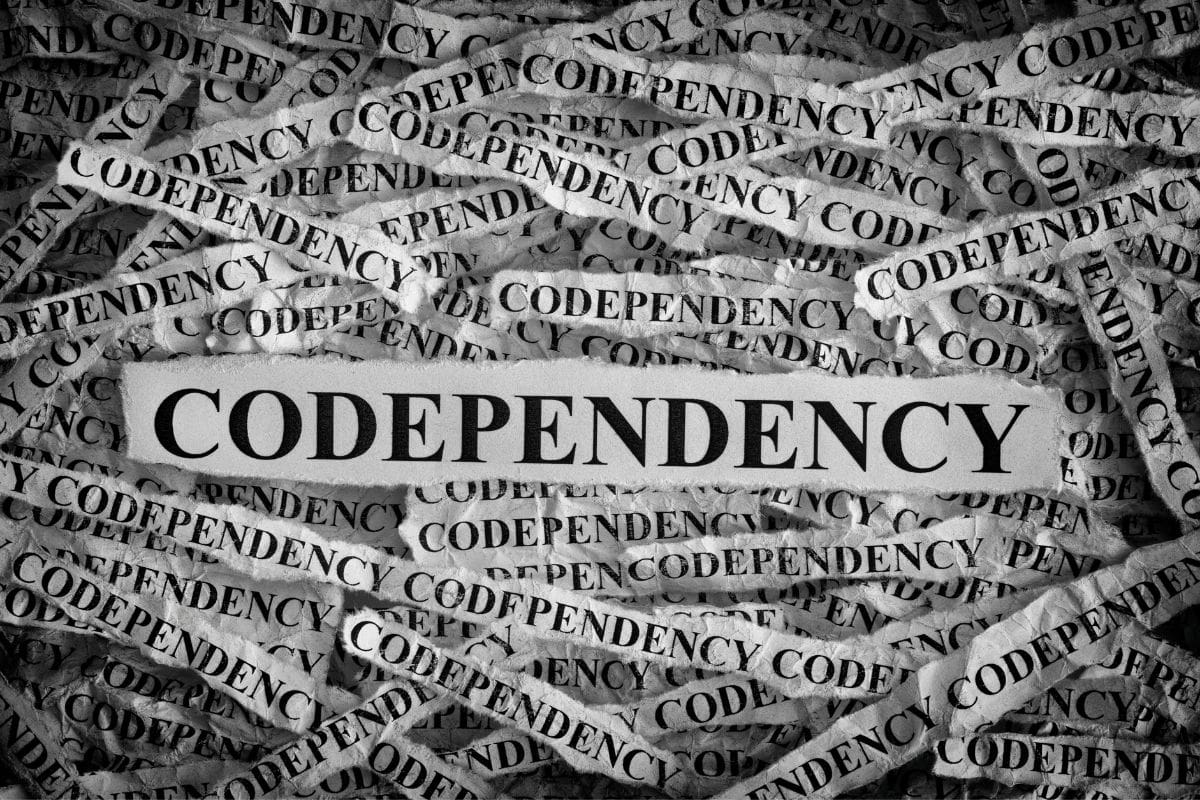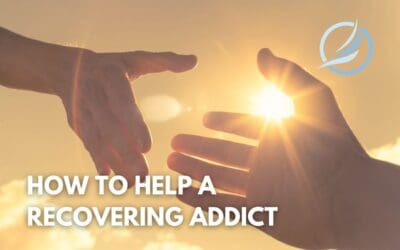4 Recovery Don’ts for Loved Ones of an Addict
The hardest lesson I ever had to learn is that, unlike a new home or clothes or a car, when someone needs recovery, no one else can get it for them. The addict has to find it for themselves and we must avoid codependent behavior. Once they make the decision to stop using, others can help them along the journey of recovery, but that decision must be wholly theirs—and so must the brunt of the recovery work—or the decision will never stick.
Codependency is defined by Oxford as “excessive emotional or psychological reliance on a partner, typically one who requires support on account of an illness or addiction.” Addiction and codependent behavior go hand in hand, for many affected by the disease.
Once my husband got into recovery, the codependency wasn’t working for us anymore. So in my own recovery from my husband’s addiction, I’ve identified 4 key unhealthy codependent behaviors I work very hard not to engage in now and what I do instead.
1. Keeping Tabs on the Addict

Why This Codependent Behavior Was Unhealthy
I wasted so much of my time and energy worrying about where he was and what he was doing, that my other responsibilities, such as work, didn’t get enough attention. If I were to continue that behavior once he was in recovery, all that would do is make him feel constricted and make me feel like his prison guard. These are not the makings of a healthy relationship, with him or myself.
What I Do Instead
He travels a lot for work, and since recovery, I’ve noticed a change in the way I cope with him being gone. Put simply, I don’t keep tabs on him. Before, I’d need to know his flight number and its ETD and ETA. I’d need to know what hotel he was staying in, what his agenda was for the trip, and he’d have to let me know as soon as he decided he was going to deviate from that agenda. All under the guise of a wife needs to know these things—in case something happens.
These days, I sometimes don’t even know what city he’s in, and we’ve had to start a shared calendar because I often can’t recall when he’s going to be back. Some days all I get is a text to say good morning or good night—we often will go days without actually speaking on the phone.
2. Isolating from Everyone but the Addict

As my husband’s addiction got more and more serious, our circle shrunk exponentially, until it was down to a handful of people who had an inkling of what was going on. We went to as few social gatherings as possible, saying we were sick or already had plans.
Why This Codependent Behavior Was Unhealthy
Isolating your and your loved one from others can create a false feeling of intimacy—if you’re the only ones who know the secret, that’s got to mean you truly love each other. But what it does is cut you both off from the support you so badly need.
I was so used to keeping our circle small, that when he first got out of treatment and started going to meetings, I felt threatened by all the new friends he was making. I didn’t know any of them. And yet, he seemed totally at ease and they seemed familiar with him. I was reluctant to let them in. And instead of bringing him back closer to me, it started to push him away. He needed that support.
What I Do Instead
First, I became open to getting to know his new friends. I attended open meetings with them and got to see for myself the kind of support they gave each other. Those people in those rooms became a big part of our lives, and in a way, they became my salvation. He and I were no longer alone in dealing with any of the fallout from his active addiction, and I no longer had to be his only sounding board. I didn’t realize what a burden that was until it was lifted from me.
So I started attending my own meetings and making my own friends. Today, we have untangled ourselves from our enmeshment. He has his friends; I have mine—some of them are in common and some are not.
3. Caretaking the Addict

When they’re too high or dope sick to attend a family function, we say they have the flu. When they run out of money to pay the gas bill, we scrounge for cash from friends and family to make up for the deficit.
Why This Codependent Behavior Was Unhealthy
Cushioning the blow means the cushion takes the brunt of the impact. It means we suffer the consequences of our addicted loved ones’ behavior. The money for unpaid bills comes out of our pocket. The criticisms from friends and family fall on our ears. We think we are making things easier for the addict, and we are. But no child learns to walk by someone moving their feet for them.
The first time my husband relapsed, I called the doctor, I made a list of nearby meetings, I drove him to get his prescriptions—I put in the labor, not him. Of course, recovery didn’t stick—not until he did it himself.
There’s a fine line between caretaking and supporting someone. And that line is hard to see because caretaking looks a lot like what you’re supposed to do when you love someone.
What I Do Instead
I let my husband clean up his own messes. It’s not always easy, not when my first instinct is to rescue him.
Recently, my husband called me while I was at work to ask me if I’d seen some paperwork that he’d misplaced. I had no idea where it was, and I was so worried he wouldn’t be able to find it that I almost left work to go home and help him look for it. Caretaking behavior would have been to do just that. It would also leave the impression that I didn’t think he was capable of doing this for himself.
So I stayed at work, trusting that he could find the papers, and if he couldn’t, he could figure out what to do next. And guess what—he did.
4. Putting the Addict in First Place

As a codependent partner, I often took on the brunt of the emotional and actual labor in our relationship. I did the grocery shopping. I paid all the bills. I made sure the house stayed in a semi-livable state. I kept us just above water.
Why This Was Unhealthy Codependent Behavior
To put it simply: My husband wasn’t the only addict; my drug of choice was him.
Throughout his addiction, he became what I worried about instead of myself. I didn’t have to focus on my own growth because I felt his issues were so much more urgent than mine. I lost years of my own growth because I let his addiction distract me from the work I needed to do on myself.
And in recovery, that behavior can often continue, with family members subsuming their needs for their loved ones.
What I Do Instead
Instead of jumping in to help him, I pause. In the blue socks example, what I would do now is take a step back, ask him how hard he’s looked for them, and let him know I’ll help him if he needs me to when I’m done doing what I’m doing. I allow him to help himself so I can take care of myself and finish my meal.
I practiced all of these behaviors during my husband’s addiction, and while I know they weren’t the best choice, they were the best I knew to do at the time. In my experience, I’ve equated my self-worth with being there for my loved ones, even (or especially) at my own expense. This had been so much a part of how I approached love that it’s no surprise that I got into a codependent relationship with an addict.
My behavior was rooted in love, but that doesn’t mean it was healthy. Today, I have a better perspective, and I grow more every day.
How were you codependent? What behaviors are you trying to change? Let us know in the comments.
Sources:
- https://foh.psc.gov/eapnews/consortium/codependence.html
- http://ocw.umb.edu/counseling-and-school-psychology/substance-abuse-and-the-family/New%20Folder/codependency.pdf/at_download/codependency.pdf (.PDF)


































